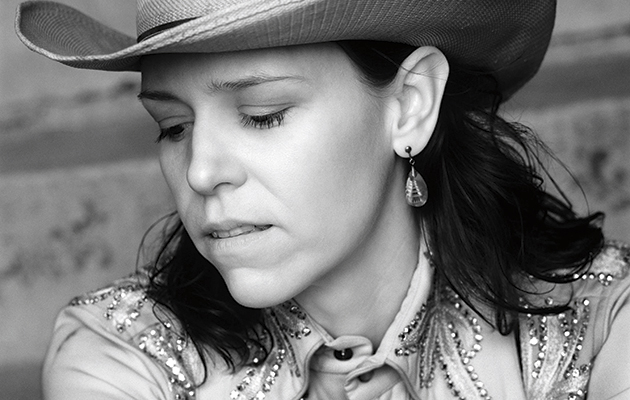From there, it only took a couple more years to reach a point where a Gillian Welch record could be made, one full of songs that – like Woodland Studios itself – used history to create something new. Certain critics might worry about authenticity, but Welch and Rawlings understand how folk music can be a constantly evolving beast. “I love,” says Rawlings, “that there’s a verse added to ‘I’ll Fly Away’ that Gill wrote, it’s on the O Brother thing, and it’s now part of ‘I’ll Fly Away’. People sing it.”
There’s a song on The Harrow And The Harvest called “Hard Times”, that Welch began work on during the sessions for Rawlings’ album. Levon Helm was scheduled to come down and play (he eventually had to cancel due to laryngitis), so Welch tried to write a song, rich with images of a Camptown man and his mule, that she thought Helm would like. One particular line, “It’s a mean old world, heavy and mean, that big old machine is just picking up speed,” reads like a lament for how the world progresses in great leaps. Welch and Rawlings’ preference, one suspects, is for something more cumulative, where nothing is left behind in the slow push onwards.
Rawlings says provocatively, “I have no interest in traditional music except to steal from it and to enjoy it as a listener,” and claims they are terrible at being traditional musicians. But he also says, “When things move forward or change, there is a sense of loss and things are forgotten.”
“It’s like airplane travel,” Welch continues. “You’ll get there, but you might not realise what you’ve missed. You may have some bizarre sense of loss, and not even be aware of what was lost.”
The next afternoon, Gillian Welch and David Rawlings return to Woodland Studios for photographs. The previous night, they had driven to their favourite restaurant in Nashville, a Japanese place, only to find it had closed down. It was their fault, they speculated, for having been out of town so long.
They remove the bags from the microphones in Studio B, and discuss how to preserve the exact alignment of the set-up; they are pondering the use of lasers, says Rawlings, and it is difficult to tell whether he is joking. It’s difficult, too, to equate these lanky and engaging people with the artists who memorialise their “Dark Turn Of Mind”, whose songs have at their most positive a certain fatalistic air, and more often a forensic fascination with the grimmer aspects of life. “With one of my penpals,” grins Welch, “we end our letters, ‘Please enjoy my pain.’”
Sitting down in the studio, they start distractedly playing their guitars as the photographer circles, and soon songs emerge out of the jam. One is a 1920s country number by Kelly Harrell called “My Name Is John Johanna”, collected by Harry Smith on his Anthology Of American Folk Music. Another is “Tecumseh Valley” by Townes Van Zandt. Both are timeless songs about poverty and travelling away to find work that end, with a certain relish, very badly. As she sings, Welch seems so rapt, so consumed, it is as if she wrote them herself yesterday.
Later, David Rawlings remembers buying a Dries Van Noten suit from Barney’s department store. He wore it onstage, he says, and reviewers called it a sharecropper’s suit. It’s the same as how writers always think Welch wears gingham dresses. They are both animated now, droll but indignant. She has, as a matter of record, never worn gingham.
“People are funny,” Rawlings decides, wonderingly.
Welch looks up from her lunch. “People are funny,” she agrees.
The History Of Rock – a brand new monthly magazine from the makers of Uncut – a brand new monthly magazine from the makers of Uncut – is now on sale in the UK. Click here for more details.
Uncut: the spiritual home of great rock music.



